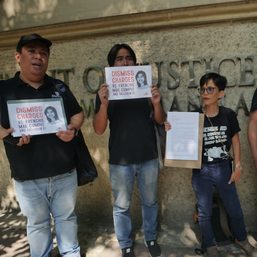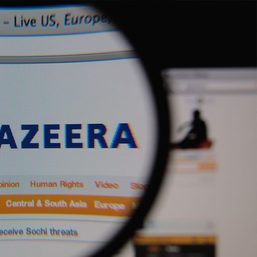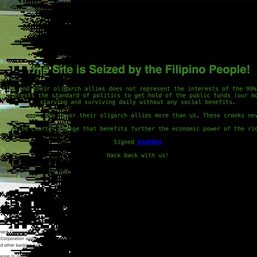SUMMARY
This is AI generated summarization, which may have errors. For context, always refer to the full article.

MANILA, Philippines – The Philippine Center for Investigative Journalism (PCIJ) temporarily took down its website on Wednesday, November 15 amid an “active hacking attack.”
In a statement, executive director Carmela Fonbuena said PCIJ made its website inaccessible for the time being in order to “assess and prevent further damage.”
“We are taking this security concern seriously and are taking steps to protect our infrastructure and our archives,” the statement read.
In a message to Rappler, Fonbuena confirmed that the hackers were able to access the website’s backend. The hacking attacks began around Monday, November 13, and escalated around noon on Wednesday.
PCIJ has yet to determine who the perpetrators are, but Fonbuena said the incident is the “most serious attack” on the website since she officially took over as executive director in January 2021.
“We understand the website has its vulnerabilities. There have been several incidents of hacking, but we were able to address the issues. It’s different this time. It is clear to me that the attacker or the attackers intended to make the website inaccessible,” Fonbuena said.
While the PCIJ website is temporarily unavailable, readers may still access its investigative reports on various news websites that republish its stories.
The recent attack on PCIJ is the latest in a long string of cyberattacks against media organizations. In 2021, alternative media sites Altermidya and Bulatlat confirmed that cyberattacks against their websites had links to the Philippine Army. Several mainstream media outlets, including ABS-CBN News, Rappler, Vera Files, and CNN Philippines suffered from distributed denial-of-service (DDoS) attacks in the lead-up to the 2022 national elections. – Rappler.com
Add a comment
How does this make you feel?















There are no comments yet. Add your comment to start the conversation.